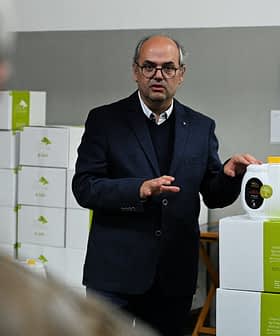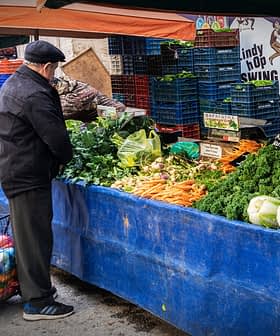Portugal's Rising Exports Fuel Demand for Imports
Researchers found that most positions are taken in the olive oil market of Portugal, but there is always room for new players.
Market research from the Office of Economic and Commercial Affairs of the Greek Embassy in Lisbon assessed the potential of Portugal’s olive oil sector and identified its traditional stakeholders. It was found that rising demand for exports fuels demands for imports, but the country is still uncharted territory for many foreign producers.
The researchers noted that Portugal is self-sufficient in olive oil and ranks fourth in annual consumption with 7.8 liters per person, following Greece, Spain, and Italy.
See Also:The best olive oils from Portugal
The annual production amounts to around 70,000 tons, taking into consideration the data of the last decade. The harvest of 2017 was expected to top at 100,000 tons, compared to 69,000 tons in 2016.
For the 2017 – 18 season, a decline is projected with the harvest possibly reaching a total of 78,000 tons of olive oil. The regions of Baixo and Alentejo in the south account for 70 to 80 percent of the total production of the country’s olive oil, where the mild climate and high precipitation levels allow for olive tree cultivation on 350,000 hectares of land.
Selling prices of extra virgin and virgin olive oil in Portugal went up in 2017 by 18 percent and 15.6 percent respectively, compared to 2016; extra virgin was selling for €3.84 ($4.76) per kilo and virgin olive oil for €3.60 ($4.46) per kilo, according to the National Olive Oil Association ‘Casa do Azeite’.
Despite that Portugal covers its internal consumption, the demand for exports stipulates that some olive oil needs to be imported and then exported as domestic oil. A ‘buy low – sell high’ approach is used in this case, meaning that olive oil is bought from lower-cost countries like Tunisia and Morocco to be then exported to other countries for a higher value. In 2015 for example, exports decreased by 6 percent compared to 2014, but their total worth went up by 17 percent due to the 25 percent rise in prices.
For the 2016 – 17 season, domestic consumption was expected to absorb 70,000 tons of the total yield of 100,000 tons, while exports were calculated at around 130,000 tons. Therefore, a quantity of 100,000 tons of olive oil should be imported to cover the demand for exports.
© Olive Oil Times | Data source: International Olive Council
Spain is by far Portugal’s biggest supplier, providing more than 98 percent of the imported olive oil. The value of the imports from Spain in 2016 came to €275.6 million ($343.47 million), with other countries like Brazil, Morocco, and Chile, contributing to the €279.6 million ($348.45 million) of imports altogether.
As far as exports are concerned, they added up to approximately €411 million ($512 million) in 2016. Spain and Brazil were the main receivers of Portuguese olive oil, each accounting for about 34 percent of the value of exports. Other importers were Italy with 15.3 percent, Angola with 3.9 percent, and France with 3 percent of the value of exported Portuguese olive oil.
According to the research, Greek olive oil is not widely known in Portugal, where consumers consider locally made oil to be of exquisite quality. However, a small quantity of 1.6 tons was sent from Greece to Portugal back in 2015, with an average price of €7.17 ($8.94) per kilo.
During the same time period, Greece imported 24 tons from Portugal with an average price of €3.48 ($4.34) per kilo. The research suggested that Greece sells expensive olive oil to Portugal and buys cheaper olive oil, keeping in mind that this is not a safe conclusion due to the limited quantities that were traded.
Finally, the Office of Economic and Commercial Affairs identified opportunities for Greek producers in the area of gourmet and organic olive oil, or private label olive oil. It also urged Greek producers and exporters to participate in the contest organized during the OVIBEJA expo held in the city of Beja in April each year, to make their olive oil known to the Portuguese market.








